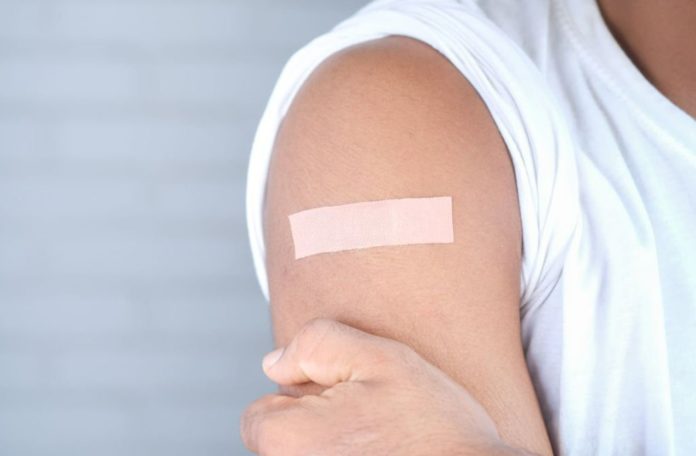Given the significant prevalence of shoulder injuries, the authors suggest that practitioners pay close attention to any factors that may enhance risk.
Between April 2016 and December 2017, fewer than 1 in 10,000 individuals who had an intramuscular immunization in the deltoid muscle experienced shoulder damage, according to a retrospective cohort analysis (pre-COVID-19 pandemic).
Given the significant prevalence of shoulder injuries, the authors suggest that practitioners pay close attention to any factors that may enhance risk.
While shoulder issues induced by improper vaccination administration may be avoided, their investigation did not determine the cause of vaccine-related shoulder injuries.
Based on clear evidence of a causal association between the injection of a vaccine and deltoid bursitis, shoulder injury related to vaccine administration (SIRVA) was included to the vaccine injury table in 2017. Vaccination has been associated with various shoulder conditions besides bursitis.
According to the suggested mechanism, shoulder disorders are induced by immune reactions when vaccinations are injected into the shoulder joint rather than the deltoid muscle. However, there is a scarcity of epidemiologic data on shoulder issues following vaccination.
During the study period, researchers from the Kaiser Permanente Southern California Department of Research & Evaluation analyzed health records for almost 3.7 million administered immunizations to estimate the likelihood of shoulder problems and examine possible risk factors.
The characteristics of vaccinated people with and without shoulder issues were examined using the natural-language processing (NLP) method to identify possible shoulder conditions among vaccinated people with shoulder disorder diagnosis codes.
There were 371 cases of shoulder problems among the more than 3.7 million vaccinations given out, with an estimated frequency of 0.99 per 10,000 adult immunizations. Only four cases of shoulder issues were reported in over 750,000 immunizations for children, indicating that the incidence was even lower.
Additionally, the researchers examined risk factors for developing shoulder conditions and discovered that advanced age, women, an increased number of outpatient visits in the six months preceding vaccination, having fewer comorbidities, and receiving pneumococcal conjugate vaccine were all associated with an increased risk for shoulder conditions in adults. Quadrivalent influenza vaccines were found to be linked to an increased risk of shoulder problems.
The administration of immunizations at the same time has been linked to an increased risk of shoulder problems in the elderly.
Source: 10.7326/M21-3023
Image Credit: Getty
You were reading: New study reveals risk factors for shoulder injury post-vaccination
